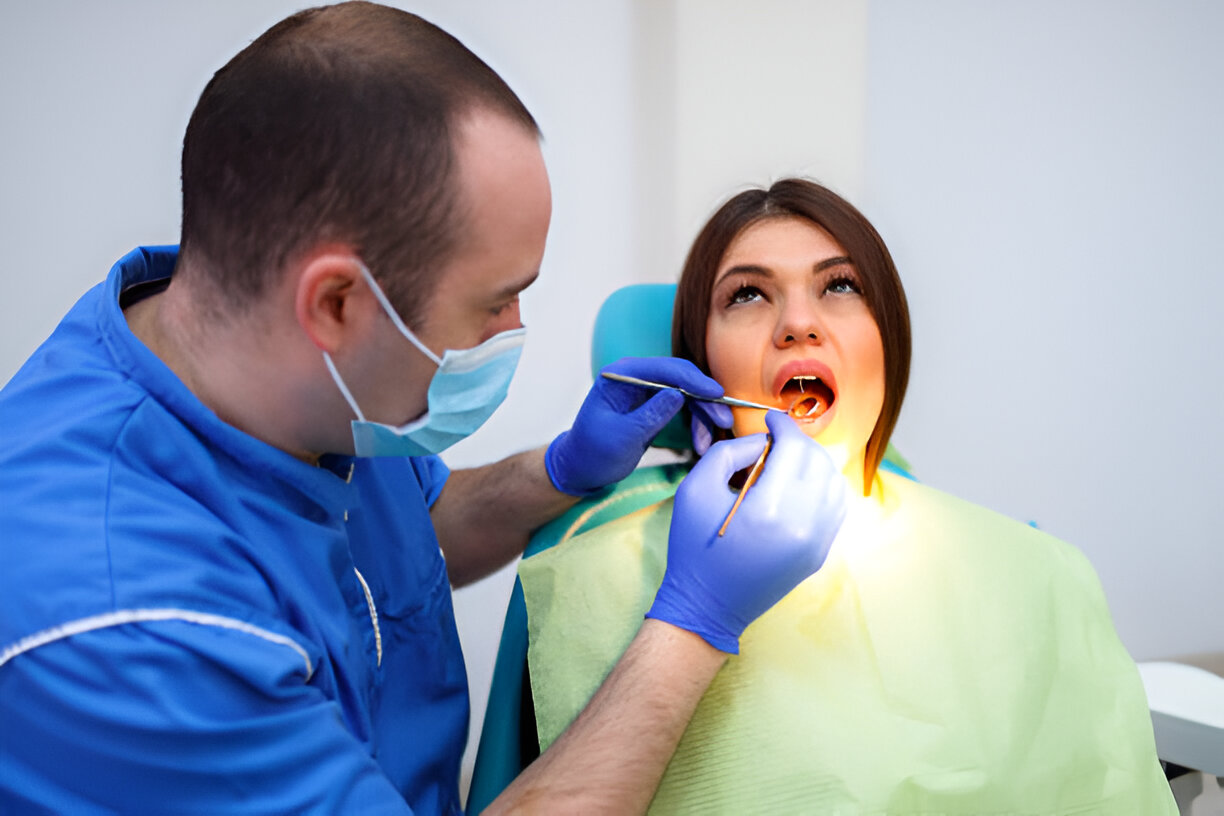If your dentist has told you that you need a dental crown, you might be wondering about the cost. Don’t worry! The NHS offers affordable dental care for everyone in the UK, including crowns. In this guide, we will explain all you need to know about NHS crowns, how much they cost, the process to get one, and how to take care of it.
What Is a Dental Crown?
A Dental crown is like a cap that goes over a damaged or weak tooth. It helps to:
- Protect a tooth that has decay.
- Fix a broken or worn-down tooth.
- Cover a tooth after a root canal.
- Hold a dental bridge in place.
- Cover a dental implant.
Crowns can be made from different materials such as metal or porcelain fused to metal. The choice of material depends on where the tooth is and what it needs.
How Much Does a Crown Cost on the NHS?
In the UK, dental treatments are split into three bands. Crowns are part of Band 3, which is the most comprehensive NHS dental care.
As of 2024, a Band 3 treatment costs £319.10. This price includes:
- A consultation and examination.
- Preparing your tooth and taking moulds.
- Making the crown.
- Fitting the crown onto your tooth.
This cost is the same all over the UK, making it easy to know what you will pay.
Types of Crowns Available on the NHS
The type of crown you get on the NHS depends on your dental needs. Your dentist will decide based on where the tooth is and how it is damaged.
Common NHS crown options include:
- Metal Crowns: These are strong and last a long time. They are perfect for your back teeth where chewing happens.
- Porcelain-Fused-to-Metal Crowns: These crowns have a metal base with a porcelain covering. They are good for front teeth because they look more natural while still being strong.
Other types of crowns, like all-ceramic or zirconia, are usually not covered by the NHS. If you want a crown that looks even more like your natural teeth, you might need to go private.
Why Choose an NHS Crown?
Choosing an NHS crown is a smart choice if you want affordable and reliable dental care. Here’s why:
- Affordable: The cost is fixed at Band 3, so you know what you will pay.
- Quality Materials: The materials used are strong and suitable for your dental needs.
- Functional: NHS crowns focus on making your tooth strong and healthy.
However, NHS crowns are mainly about function. If you want a crown that looks exactly like your natural tooth, you might consider a private option, though it will cost more.
How to Get a Crown on the NHS
Getting a crown on the NHS is simple. Here’s the step-by-step process:
- Initial Consultation: Visit your NHS dentist. They will check your teeth and decide if you need a crown. You will get a treatment plan and learn about the costs.
- Tooth Preparation: In your next appointment, the dentist will prepare your tooth. This means shaping the tooth to fit the crown and taking moulds of your tooth.
- Temporary Crown: You might get a temporary crown to protect your tooth while your permanent crown is being made.
- Fitting the Crown: During your final visit, the dentist will place the permanent crown on your tooth. They will make sure it fits well and feels comfortable.
This process usually takes two to three visits over a few weeks.
Taking Care of Your Crown
To keep your crown in good condition, follow these simple tips:
- Brush Twice a Day: Use fluoride toothpaste to keep your teeth and crown clean.
- Floss Daily: Remove food stuck between your teeth and crown.
- Avoid Hard Foods: Don’t bite down on hard things like ice or hard candies.
- Regular Check-Ups: Visit your dentist regularly to make sure your crown is in good shape.
With proper care, an NHS crown can last between 5 to 15 years.
Are You Eligible for Free NHS Crowns?
Some people in the UK can get free NHS dental treatment. This includes:
- Children and Young People: Under 18, or under 19 if you are in full-time education.
- Pregnant Women: And those who had a baby in the last 12 months.
- People on Certain Benefits: Like Universal Credit or Income Support.
To see if you qualify, ask your dentist or visit the NHS website for more information.
Private vs NHS Crowns: What’s the Difference?
NHS crowns are designed to meet your dental needs at an affordable price. They are strong and effective but might not look as natural as private crowns. Private crowns, such as all-ceramic or zirconia, are made to look more like your natural teeth and can be more durable. However, they cost more, usually starting around £500.
When choosing between NHS and private crowns, think about your budget and what you need. Talk to your dentist to decide what is best for you.
Final Thoughts
Getting a dental crown on the NHS is an affordable way to restore your tooth’s health and strength. With a Band 3 treatment costing £319.10, you get everything from the consultation to the fitting of the crown. NHS crowns focus on making your tooth strong and functional, ensuring you receive quality care.
Restore Your Smile at Holburn Dental and Implant Centre
Looking for an NHS dentist in Aberdeen? Holburn Dental and Implant Centre provides top-quality NHS and private dental treatments tailored to your needs. If you’re considering a dental crown, our experienced team is here to guide you every step of the way. Schedule your consultation today and let us help you achieve a healthier, more confident smile. Call us now to book an appointment!
FAQs About NHS Dental Crowns
1. How long does an NHS crown last?
With proper care, an NHS crown can last between 5 and 15 years. Good oral hygiene, regular dental check-ups, and avoiding habits like teeth grinding can help extend its lifespan.
2. Can I choose the material for my NHS crown?
The material depends on the tooth’s location and clinical need. Metal crowns are usually for back teeth, while porcelain-fused-to-metal crowns are common for front teeth.
3. Are there hidden costs for NHS crowns?
No, the Band 3 charge of £319.10 includes all costs, from preparation to fitting. Additional costs apply only if unrelated treatments are needed.
4. Do NHS crowns look natural?
NHS crowns focus on function rather than appearance. Porcelain-fused-to-metal crowns for front teeth look natural, but private options may be more aesthetic.
5. Can I switch from NHS to private treatment for crowns?
Yes, you can opt for private crowns if you prefer more material or aesthetic options. Discuss with your dentist for advice and costs.


